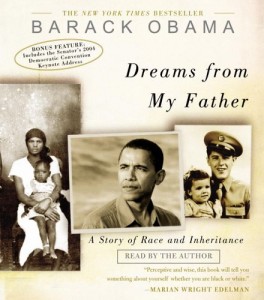While on the subject of infrastructure, and the UK Government’s lack of any apparent action to start new infrastructure projects despite the economic crisis, here is a draft plan of action:
- Start with a national competition for suggestions for new infrastructure projects. People and businesses in regional communities have loads of ideas for projects – should anyone in Westminster bother to listen. Perhaps allow 1 month for this, so Month 1 is spent soliciting proposals. Creating a press release to announce the competition and a web-site to receive suggestions could be done within a day.
- In the meantime (also during Month 1), create a temporary government agency like Australia’s national infrastructure agency, to receive these proposals and do a preliminary filtering in terms of (say): employment impact, wider business impact, social impact, cost, and long term potential for follow-on benefits. A leading management consulting firm or two could be used to detail the criteria, assess all the proposals against the criteria (tedious but necessary work), and produce this long listing, winnowing down from (say) hundreds of proposals to (say) 50. Month 2 could be devoted to this effort.
- Then, have an appointed national committee, comprising politicians from all three major national parties, people from business and industry, the trades unions, people and politicians from the regions (say about 20 people) assess the 50 long-listed proposals and winnow them down to (say) 10. This should be done in closed session in one, dedicated, all-day-and-all-night effort, over (say) 7 days. We want the committee to bond, because we want their conclusions to be unanimous.
- Then, prepare detailed technical and financial plans for each project on the shortlist. This could be achieved within (say) 21 days. As with the earlier stages, this work could be undertaken with the assistance of consulting and/or engineering firms, major corporations or banks – there are currently lots of bankers at a loose end, I hear. Hell, I’d even volunteer for this myself, because of the fun it would be and the importance of the work.
- Then, fund the final 10 projects immediately and start digging ground (or spinning fibre, or whatever). These projects should be give short, sharp names (eg, Fibre-up; Fast-Track) and short descriptors, so that every person over 16 can identify with them, and support them. Insist that each team’s management produce detailed progress reports online each month, with (say) quarterly public hearings. We want this work done, done well and done properly.
Total time, from start of campaign to shoveling: 3 months.
Of course, I realize getting major projects to shovel-ready normally takes longer than 3 months. THIS FACT SHOULD NOT STOP ALL THESE PROJECTS STARTING SOMETHING WITHIN 3 MONTHS. A key task will be creating semi-permanent, quasi-independent parastatal bodies (quangos) to run each project, to acquire land, employ people, etc. That can all be done after the projects start, since the first main purpose of these projects is to boost aggregate demand and employment in the short run. Our models here should be the USA’s Tennessee Valley Authority and Australia’s Snowy Mountains Scheme, updated for the Internet age.
Not all infrastructure projects need to involve alteration to the earth’s physical landscape. My own proposal would be to create a major national organization – part-research lab, part-investment bank – to identify, to prototype, to seed, and to invest-in business ideas for future-generation Internet applications, starting from about Web 6.0 (whatever that will be) and upwards – a Xerox Parc for 21st-century e-services, with an investment budget of (say) USD 5 billion or so to start. I would start this with public funding, with the aim of privatizing it once it becomes successful.
And (added 2009-02-12), if 3 months is too long (and it is), here are three potential major national infrastructure projects suggested by journalist Andrew Rawnsley:
- A national high-speed rail network (I would call this Fast-Track, or similar)
- A national, super-fast broadband fibre optic network (Fibre-Up), and
- A large-scale renewable energy production program, connected to the National Electricity Grid (Green-Power-to-go!).
There would be nothing stopping the Government spending (say) GBP 1 million on each of these to prepare outline feasibility and financial plans, with the aim of launching one of them within a month.
Building a national fibre broadband network without thinking also about what would run on it would not be sensible, which is why I propose the Web6.0 idea above. But a little creativity could generate lots of proposals for non-physical infrastructure, which would create UK employment here and now, train people, stimulate demand, and leave something behind for future generations, for example:
- Digitizing the contents of ALL Britain’s art galleries and museums, something which could employ artists, photographers, and lots of those unemployed media studies and IT graduates.
- Digitizing the contents of the British Library, the main University Libraries and the national archives.
- Digitizing ALL past census records.
- Recording the life story of every citizen over 65.
- Recording a performance at every live music venue in the country, including pubs and churches.
- Producing online visitor guides to every locality in the country, annotated by people resident in the locality.
- Producing a digital record (films, interviews, oral histories, photos, etc) of every factory facing downsizing or closure, with a record of the skills and networks being lost.
It should not need saying that all this digitized information, if paid for from the public purse, should be made freely accessible online. These projects could be our generation’s equivalent of the Works Progress Administration. I am sure there are many more ideas, both sensible and wacky, than these.
Well, Mr Brown? What are you waiting for? How about some vision? If not these projects, then what? If not now, then when?

